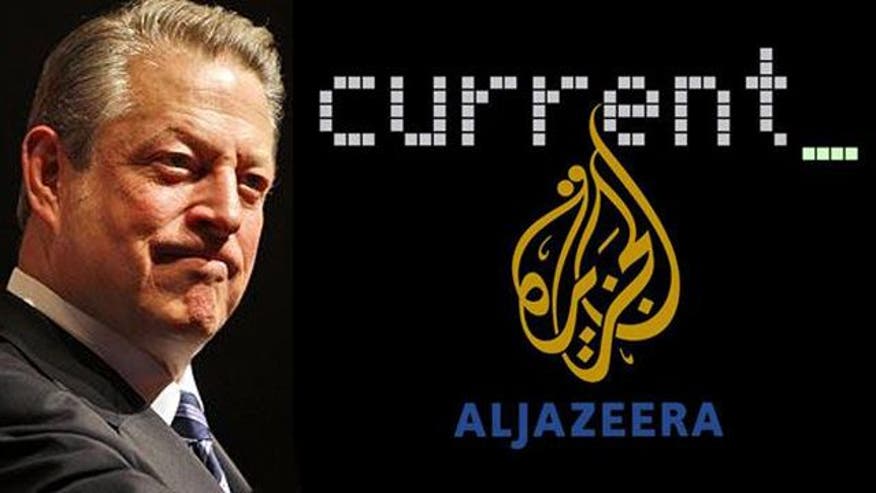
Last week, Gore and Current TV shareholders sued Al-Jazeera for fraud because, Gore attorney David Boies told reporters, "Al-Jazeera America wants to give itself a discount on the purchase price that was agreed to nearly two years ago."
The dispute raises the question: Can oil and sanctimony mix?
After he lost the White House, Gore resumed his role as anti-global-warming activist in the film "An Inconvenient Truth." As a senator, Gore wrote the 1992 book "Earth in the Balance," in which he argued that global warming represented such a dire threat that only a "wrenching transformation of society" could spare the planet, such as a government mandate to eliminate the internal-combustion engine in a 25-year period.
It's almost 25 years later, and the wrenching transformation instead seems to be that Gore and company cannot get enough Middle East oil money.
Liberal fans of Current TV, you got used.
Launched in 2005, Current TV provided safe landing for current and former Democratic politicians. In the past few years, the network hired former Democratic Michigan Gov. Jennifer Granholm, former Democratic New York Gov. Eliot Spitzer and California Lt. Gov. Gavin Newsom, who apparently had no trouble juggling two jobs.
Alas, the viewing public did not tune in to watch current and former Democratic politicians pontificate like politicians. About 31,000 viewers were tuning in daily.
Current TV nonetheless was worth millions because cable and satellite companies granted the network access to some 40 million households. And why was that? New York Times media reporter Brian Stelter credited Gore with pushing cable and satellite providers to include his untested network "through a combination of personal lobbying and arm-twisting of industry giants."
When cable bigs such as Time Warner started to squawk about dropping the barely watched Current TV, Gore and company sold their lefty investment to Al-Jazeera.
After the deal was announced, you might think that Gore would have chosen to modulate his criticism of the oil industry, given his personal debt to Qatar crude. Wrong. That month, Gore went on NBC's "Today" to promote his book "The Future: Six Drivers of Global Change." In the book, Gore wrote, "Virtually every news and political commentary program on television is sponsored in part by oil, coal and gas companies" — as if that's a bad thing.
Gore told host Matt Lauer it's wrong to criticize him, because Al-Jazeera is "a really distinguished and effective news-gathering organization."
Now Al-Jazeera America has even fewer viewers — 17,000 during prime time nightly — than Current TV. And lawyers are involved.
So Al Gore and company are suing Al-Jazeera for fraud. But who gets to sue Gore?
Comment by clicking here.



 Contact The Editor
Contact The Editor
 Articles By This Author
Articles By This Author